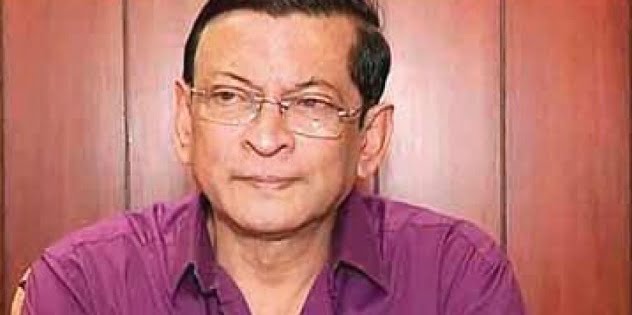Priyabrata Patnaik: Of Anecdotes And Remembrances

After knowing about Priyabrata’s demise (on July 21), many people called me from afar and shared their memories. Only a few of them were from the IAS. Others were just enamoured of him. I take the liberty of sharing their comments with a larger audience, for as they say, sweetness needs to be shared to make it sweeter.

This one is from a classmate of his: Priyabrata was a student of Ramjas College (in Delhi). He was not a topper, but he was mischievously different. In the college there was a lecturer who was a bully. Students had the choicest of expletives for him, but those were exchanged only in private conversations among friends. Priyabrata said he could say it on the lecturer’s face. As his friends watched, he walked up to the lecturer and told him that his students were indeed badmouthing him. “Sir, I cannot tell you what exactly they say since it will hurt you badly,” said Priyabrata. The poor lecturer could not resist his temptation to hear the exact words. Priyabrata extracted a promise from him that he would not ask for the names of the students. And then he reeled out whatever he wanted to say, not what his friends were saying.
This one is from a doctor: Priyabrata was Collector of Cuttack. A junior doctor of SCB Medical College was detected with blood cancer. Back in 1984, the only reliable place for treatment of the disease was the Tata Memorial Hospital, Bombay. The cost of treatment and logistics went above Rs two lakh. The doctors tried to raise money for his treatment. They could collect Rs 50,000. They had no clue how to raise the remaining amount. Someone told the narrator that the Collector might be approached for help. It was officially not possible for the Collector to help the poor doctor. Government money was in short supply. No scheme was available for such purposes. But Priyabrata took it upon himself to raise the necessary funds. I am sure he forgot the incident himself, since he never mentioned it to any of us. One could mention many such incidents. If he was convinced about a genuine need, he went about helping as if he were obliged to do so, be it the case of the doctor or athlete Budhia Singh, be it a cultural show or a tournament in which he never played.
The year was 1999. October 29. Although there was a cyclone warning, we went to the Secretariat as usual. After all, cyclones were not new to us. We expected to go back home for a late lunch and then again to office as usual. As the day progressed, the storm raged, more and more furious by the hour. By noon the electricity was gone. People started deserting office to look after their families. By the afternoon, the Secretariat had been scooped out of almost all its employees. A few of us managed to cling to the walls and crept up to the Chief Secretary’s room. By evening, the Secretariat was plunged into utter darkness. The roar of the super cyclone had devoured the entire place. A single petromax light was fighting a lone battle in the dark corridor of the Chief Secretary’s office. The prospect of going home for the night had been blown away. We were stunned and hungry. We could not have ordered food from anywhere. No place was open. Suddenly some people materialized from the depths of darkness. With food. There was enough food for us and for everyone who was in the Chief Secretary’s office – Group A, Group B, Group C and Group D. You guessed it right. It was from Priyabrata Patnaik who was nowhere in sight. Sometimes he preferred anonymity.
Farewell, my friend.
(The author was a friend and 1976 IAS batchmate of Priyabrata Patnaik)

Comments are closed.